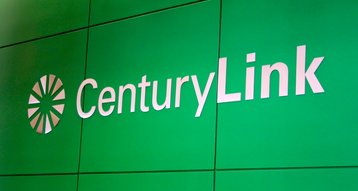It looks like we are set for yet another major shake-up in colocation, and the result will be more consolidation. This week we heard that Equinix and Telecity must sell off eight data centers in Europe, to get their merger approved.
And earlier this month we learnt that CenturyLink is thinking of selling off its data centers - after years spent painstakingly building them up. The Telecity sites could go to anyone - though Equinix would prefer they weren’t bought by a large competitor, but the CenturyLink sell-off could be a sign of a big trend, with telecoms operators reconsidering whether they want to actually own facilities or not.
Demand still high
There is no shortage of demand for data centers. Both Telecity and Equinix recently announced expansion in Europe: Telecity with a new facility in Amsterdam, and Equinix with an expansion to its Slough, UK site.
Not to be outdone, Interxion, the provider which planned to merge with Telecity till Equinix poached the company, has also announced an expansion - a $170 million plan for new space in four European cities - and meanwhile, Interxion’s Paris 7 data center won a court case proving it is not not too noisy, and can remain open.
Where is the profit?
So, on the one hand there is clearly a high demand for this sort of space. But on the other hand, it seems that CenturyLink can’t make a profit from it. That was what CEO Glen Post said in a results call.
Despite spending billions on data centers since it bought Savvis four years ago, CenturyLink is still a telecoms firm with a side business in colocation space. Its communications profits are good, but the data center business is not making money, so Post says it’s time to look at changing the model.
That’s a familiar story. In India Tata Communications painstakingly built up a million square feet of data center space, only to decide to sell it off and focus back on communications, creating a storm of speculation as to who will get the assets.
In the US, a smaller scale deal might point to the direction these deals will go. Arkansas-based telco Windstream had been growing a data center business, then abruptly sold it to specialist data center firm TierPoint. The deal means Windstream can go on selling data center services, but it’s up to TierPoint to deliver them.
And since CenturyLink made its statement, Verizon has said it may sell its own data center business.
That’s surely the way CenturyLink will go if it does sell off its assets - it will still have plenty of customers wanting data center services, and whoever buys the facilities will be the logical firm to deliver to those customers.
But it raises questions. Will we see a mass focussing exercise, as all the telcos in the world divest their data centers? If we do, the assets will probably go to the large REITs who can manage this stuff profitably. The assets may even be sold back to firms like Digital Realty, which built them in the first place.
If that happens, we could see consolidation on a giant scale. These telcos are already running their data centers efficiently, but the only way for the new owners to turn a profit will be to trim the costs even more.
A version of this article appeared on Green Data Center News.



